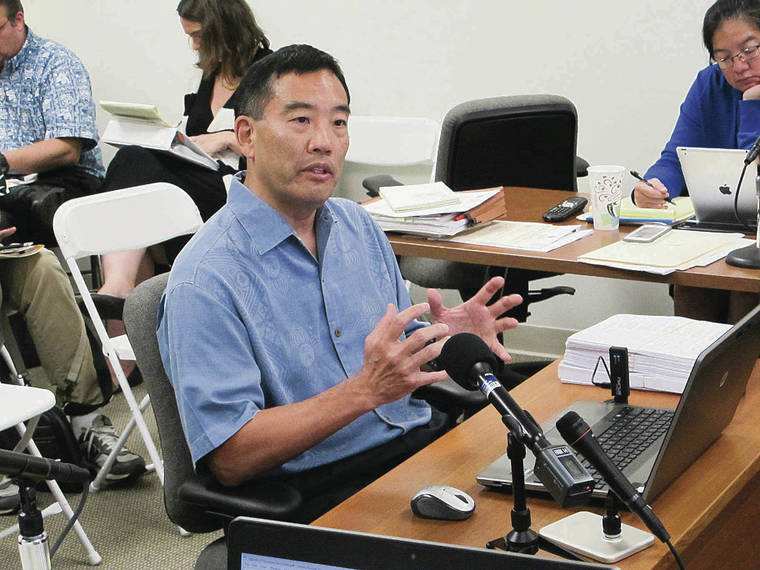The Office of Hawaiian
Affairs claimed victory Friday after a 1st Circuit Court judge ruled in favor of its suit against state Auditor Les Kondo.
But the dispute linked to an audit of OHA’s limited-liability companies might not be over.
Judge Jeffery Crabtree ruled Thursday that Kondo may not violate OHA’s
attorney-client privilege, and threw out the auditor’s motion to dismiss the suit.
OHA filed its suit in response to Kondo suspending his office’s audit of OHA’s LLCs in December after the OHA board of trustees refused to hand over unredacted minutes of its closed-
door executive sessions.
Suspending the audit resulted in a $3 million state allocation to OHA being put on hold because the Legislature conditioned the release of the money on completion of the audit.
“OHA hopes that the State Auditor will now follow the law and complete their audit so the State Legislature can release the $3 million dollars in general funds,” OHA said Friday in a statement.
Contacted by the Honolulu Star-Advertiser, Kondo said the judge’s ruling “does not change the fact that we cannot complete the audit of OHA’s LLCs without the unredacted minutes of the Board of Trustees’ executive sessions.”
In an email, Kondo said his office never challenged OHA’s assertion that the minutes contained attorney-
client communication.
“However, if we cannot review those minutes, we cannot complete the audit. Until the Board of Trustees fully cooperates in the audit, including providing us with complete and unredacted minutes, the Government Auditing Standards issued by the U.S. Government Accountability Office compel us to suspend the audit,” he said.
“We simply want OHA to be transparent so we can complete an important audit of the LLCs,” Kondo said.
From September 2007 to October 2015, OHA created seven LLCs to hold OHA assets, such as Waimea Valley, and to pursue outside business opportunities and other higher-risk ventures.
The audit, which was ordered by the state Legislature, focuses on OHA’s use and oversight of its LLCs, which OHA had previously maintained were not subject to state laws applicable to OHA and other state agencies.
“State agencies must be accountable, and in the case of OHA, that need for accountability is even greater given the Board of Trustees’ fiduciary responsibilities to its native Hawaiian beneficiaries,” Kondo said.

